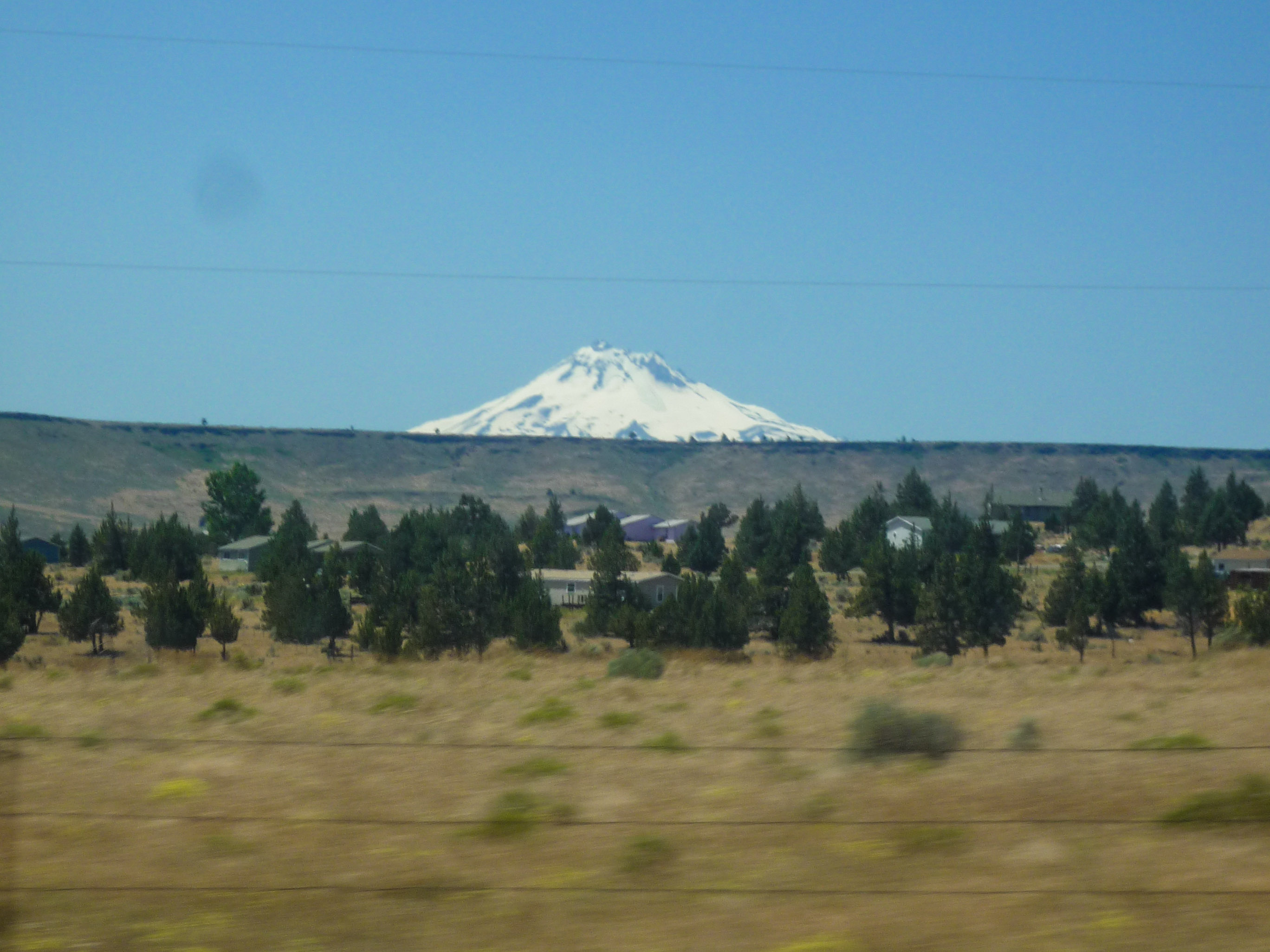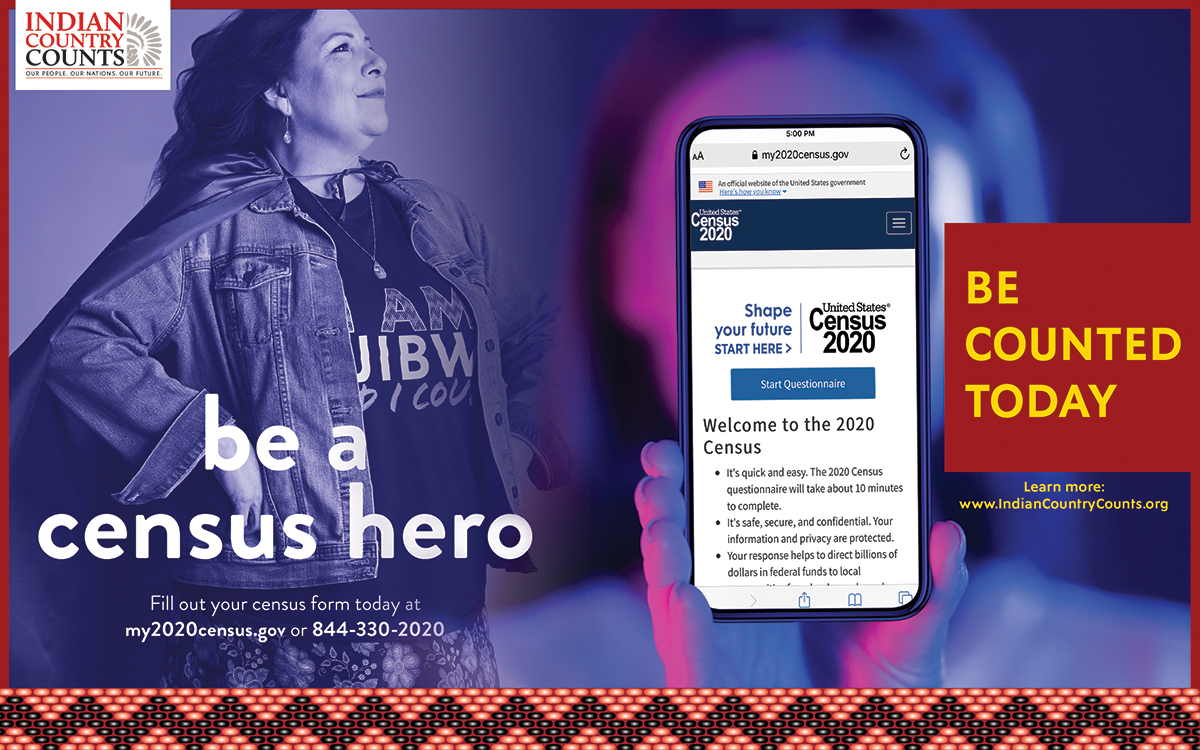
Census in the Age of Pandemic
Every decade, American Indians and Alaska Natives are routinely undercounted by the U.S. Census Bureau’s massive, nationwide effort to tally everyone within the country’s borders. At stake are millions of federal dollars for community programs.
To prevent future undercounts, states and cities are pumping millions of their own dollars into promoting participation in the 2020 Census. For Oregon, a major point of focus is the historically undercounted Native American population. But the COVID-19 outbreak is only making it more difficult to accurately survey Indian Country, where the Census Bureau has struggled in the past.The curtain rose – then quickly fell – on a kickoff gala on the Confederated Tribes of Warm Springs Reservation on March 12. Trumpeted for weeks in advance by Census officials and the media, the gala was to be the centerpiece of efforts to engage reservation residents and push them toward greater participation than was seen in the 2010 Census, which, like previous population counts, suffered an undercount of American Indian and Alaska Natives.A taco lunch was provided, as well as a children’s mini powwow. An esteemed tribal elder and veteran was Oregon’s first 2020 Census participant. Speeches by tribal officials urged the importance of the Census to Native people.Yet the night before, Oregon Gov. Kate Brown announced limits on crowd sizes at organized eventsas the state addressed steadily increasing cases of COVID-19.Posted by KWSO on Wednesday, September 2, 2020
Jaylyn Suppah, a community planner for the tribe’s health and human services branch, was charged with making sure the Census kickoff had plenty of food for attendees. At the onset, she figures nearly 100 people showed at the Agency Longhouse in Warm Springs.“We just finished out the day and we kind of just started looking at the protocol she (Brown) put out,” Suppah said. “It was an all-day event, so people came and went. It wasn’t crowded or anything.”But afterward, the pandemic slammed the brakes on what was to be an aggressive, far-reaching effort to prevent a repeat of past undercounts. As of Aug. 31, the Warm Springs reservation had a self-response rate of 40.2%. While that’s better than its final 2010 rate of 35.8%, it’s well below that of Oregon (67.9%) and still not as high as Census officials want.In 1990, the undercount for American Indians and Alaska Natives nationwide was more than 12%, while in 2010, that figure was 4.9%. At a 2018 hearing, U.S. Senator Tom Udall of New Mexico told the Senate Committee on Indian Affairs that the federal government spends $3,000 per person in his state, meaning significant losses for tribes when reservation residents go uncounted. In Oregon, the state has pumped $7.7 million into education and outreach for the 2020 Census in hopes of securing those federal dollars.Suppah has found her role shifted from event catering to Census activities coordinator (from tacos to tallies, essentially). With the slate of originally scheduled Census activities canceled, she’s shifted to more pandemic-friendly events. Those included drive-through Census events across the reservation. By her estimate, at least 180 people took part in those activities, out of the 3,330 residents who live on the reservation. This year Census questionnaires can be completed online, but that won’t be a great help in Indian Country, Suppah said.“When we’re expecting folks to be counted online, it’s really hard,” she said. “You have a lot of folks that don’t use the internet or have access to the internet. It’s not our strong suit.”


Of $675 billion in data-driven funding, the Census allocates $1 billion annually toward federally recognized tribes. These funds help develop housing, employment training, and infrastructure in communities that are largely rural.
Debra Whitefoot, a member of the Confederated Tribes and Bands of the Yakama Nation, agrees about the trust issue. She’s supporting Census-taking efforts with tribal residents living in “in lieu” sites along the Columbia River. The federal government agreed to build 31 such sites after dams flooded traditional fishing areas. Many of the in-lieu sites, however, lack safe and sanitary conditions.“Historically, the trust issue is that those aren’t designated tribal reservation areas,” Whitefoot said. “That’s why they’re hard to count, and that’s why they fall through the cracks. Because it’s not a tribally designated area. It’s a ceded land.”While there have been efforts by Congress to improve living conditions at the in-lieu sites, Whitefoot says mistrust and apprehension are harder to fix. In the past two months, people like Miller, Whitefoot, and Suppah have helped circulate paper Census forms and information in the urban and reservation areas they’ve targeted. Whitefoot said that during a food-box drop to some Native American communities along the Columbia River on May 20, she included packets of Census materials, frequently asked questions, and COVID-19 materials, including face masks.Durán Pacheco, the Census Bureau official, acknowledged there are barriers to conducting the count in Indian Country. But she said the bureau has taken steps to improve response rates this year.“With its unique public health history and challenges, such as lack of running water, and remote villages, it has been a bit difficult,” Durán Pacheco said. “But we have our partners, and our tribal liaisons on the ground.”
The Warm Springs Complete Count Committee invites everyone to the 2020 Census Kick Off event today at the Agency…
Posted by Confederated Tribes of Warm Springs, Oregon on Thursday, March 12, 2020
Back at the Warm Springs reservation, Suppah tries to coordinate safe and efficient ways to complete the 2020 Census count. She said she has three census takers helping her, but there’s still uncertainty as her people deal with the pandemic.“Everything changes from day to day. I’m always wondering what’s going to happen,” she said. The Warm Springs tribal government has had several shutdowns this year, and operations are currently at half capacity as of this writing. The tribe says more than 260 cases of COVID-19 have been reported, with seven fatalities. And on top of everything else, the tribe is dealing with several wildfires, and clean water issues. Until late August, most of the reservation was on a boil-water notice, and Suppah’s family regularly went to the Bear Springs Campground to fill up six 5-gallon water jugs.“So every day we’re strategizing on how can we do the Census? How can we help our community while we’re dealing with the pandemic and water?” she said.Census data informs fund allocations to programs under the Fair Housing Act, the Public Health Act, and the Equal Credit Opportunity Act, among others, that would help address some of those problems. Tribal leaders are banking on getting members counted as thoroughly as possible during the 2020 Census to ensure access to those coveted federal dollars.
Brian Bull has been involved in journalism for 25 years and has filed for National Public Radio, the BBC, and other broadcast outlets. A proud citizen of the Nez Perce Tribe, Bull mentors up and coming journalists of color through NPR’s Next Generation Radio Project. When not covering news in the Pacific Northwest, he’s either spending time with his family or looking for hidden patches of huckleberries.
This story originally appeared on Underscore.news, a nonprofit journalism organization based in Portland, Oregon. Supported by foundations, corporate sponsors, and the public, our reporting focuses on underrepresented voices and in-depth investigations.
AUDIO: Sea Lion Predation in the Pacific Northwest
Native America Calling: Tribal colleges see an uncertain federal funding road ahead
Native America Calling: Short films taking on big stories
Native America Calling: Advocates push back against new obstacles to Missing and Murdered Indigenous Relatives momentum
Native America Calling: For all its promise, AI is a potential threat to culture
NAFOA: 5 Things You Need to Know this Week (November 24, 2025)
Chuck Hoskin: Cherokee Nation invests in rural transportation
Native America Calling: Native candidates make strides in local elections
National Congress of American Indians returns incumbents and welcomes newcomers to leadership
National Congress of American Indians chooses leadership at big convention
‘Not voting is still a vote’: Native turnout drops amid changes in political winds
Native America Calling: Indigenous voices speak up, but have little clout at COP30
‘It’s bull****’: Indian Country confronts challenges at largest inter-tribal conference
Native America Calling: The constant burden on tribal hunters to justify their treaty rights
More Headlines